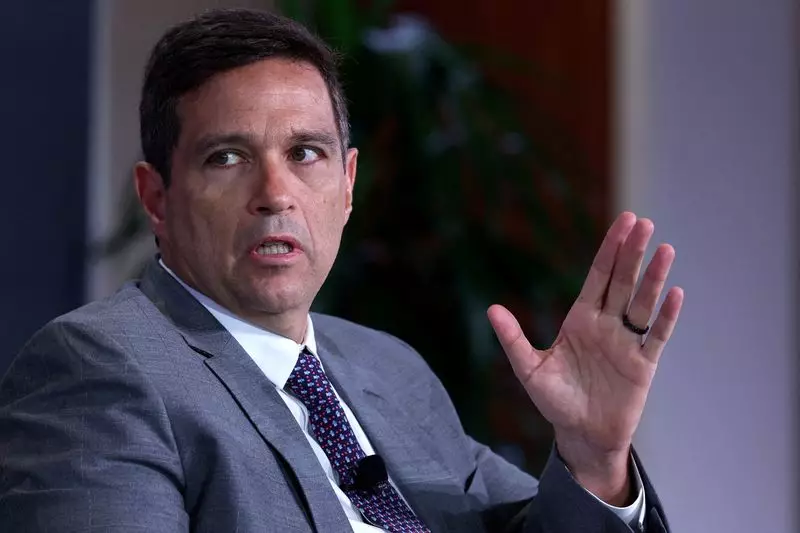The recent fluctuations in financial markets signal a growing apprehension regarding the ability of governments to intervene effectively in fiscal and monetary matters. Roberto Campos Neto, the President of Brazil’s central bank, articulated these insights during the esteemed economic summit hosted by the Kansas City Federal Reserve in Jackson Hole, Wyoming. His commentary suggests a tightening landscape where the nuances of fiscal policy can no longer be detached from monetary operations. The core message underscores a potential reduction in the latitude for economic maneuvering, as stakeholders recalibrate their expectations of central banks’ capacity to effect change in the complex interplay of global economics.
A noteworthy element of Campos Neto’s address was the potential ramifications of China’s economic deceleration on Brazil’s market dynamics. The contention is that Brazil may experience significant shifts in trade terms and import pricing stemming from a weakening Chinese economy. This observation draws attention to the interconnected nature of global economies, where fluctuations in one major economy can reverberate across the world, impacting commodities trade and pricing strategies. Nonetheless, the actual consequences for Brazil will vary significantly based on the extent of China’s slowdown, raising questions about resilience and adaptability in emerging economies facing external shocks.
The annual symposium in Jackson Hole has emerged as a pivotal occasion for central bankers and economic leaders from around the world, focusing on monetary policy discussions in the magnificent backdrop of the Grand Teton National Park. The platform allows for critical dialogue surrounding monetary transmission—essentially evaluating how adjustments in interest rates can influence economic momentum. This discourse is particularly pertinent as countries navigate economic recovery while grappling with inflationary pressures post-pandemic.
In the sphere of Brazilian monetary policy, Campos Neto’s remarks hint at a cautious yet vigilant approach taken by policymakers. Following a period of stasis, maintaining the Selic benchmark interest rate at 10.5%, the central bank leaders underscore a commitment to remaining adaptable and responsive, essentially signaling that future actions will be predicated on empirical data analysis. The current inflation rate, reported at 4.5%, substantially deviates from the target of 3%, suggesting a need for potential rate adjustments. Market sentiments reflect an overwhelming anticipation of a possible interest rate hike in the upcoming policy meeting, indicating a shift in market expectations aligning with the observed inflation trajectory.
The stance of Brazil’s central bank is one of data-dependence, meaning that their actions will closely mirror economic indicators and emerging financial realities rather than strict pre-determined guidelines. This responsive approach may strengthen the relationship between economic policy and market sentiment, enabling better alignment with investor expectations. As central banks gear up for an uncertain economic environment, where inflation, external factors, and domestic growth interact dynamically, the need for vigilance and adaptability has never been more pronounced.
In essence, as the global economic landscape evolves, Brazil’s ability to navigate these challenges while formulating robust monetary policies will be essential in sustaining economic stability and growth. The ensuing months will be critical as Brazil and other economies respond to shifting economic currents both locally and internationally.

